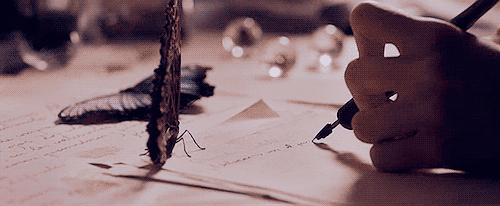Children’s and YA Authors: Don’t miss these 13 Resources
For first-time authors, it can be a daunting task creating the initial plan for your book, let alone actually writing it. This is especially the case for authors of children’s and young adults’ books. Thankfully, courtesy of the internet, there’s a lot of hugely helpful information available that will help your ideas blossom into a book.

Access to online resources have also flowered into a beautiful garden of support and inspiration. Featuring articles by and interviews with best-selling authors, all unwrap the mystery of writing books. They also have top tips and advice for getting started, developing plot and characters, as well as the business side of the publishing industry.
With digital books also an option, in addition to print books, there’s a huge potential now available for interactive ebooks for children. Authors are no longer restricted to just paper printed editions. They now have the option of tablets and computers to give their books an extra accessibility previously not found.
Below are 13 top online resources specifically aimed at authors writing in the children’s and young adults (YA) genre.
1. Fiction University
More a general hub for writers set up by author Janice Hardy. This general website focuses less on what you should be doing and more on how to apply good advice to your writing. Included amongst the top gems are how to plan, write, edit and publish finished manuscripts, as well as top tips from successful authors.
For more: http://blog.janicehardy.com/
2. KidLit
Run by agent Mary Kole, don’t let the slightly colourless and unexciting design put you off. It’s a more serious blog that deals with the meatier issues of writing and getting published. It features a whole battery of answers to author questions on editing, publishing, dealing with agents and the like. The point to remember is that it’s written from the point of view of an agent.
For more: http://kidlit.com/
3. Inky Girl
It’s a focus on children’s and young adults literature with a twist. A wonderfully interactive site that includes challenges (such as how to turn a coffee stain into art). It also covers writing techniques for books aimed at young readers and illustrating tips. And all done through a unique mixture of comics and words. There are also plenty of tips for young writers, rather than just for adults.
For more: http://inkygirl.com/
4. KidLit411
A wealth of golden nuggets of advice from author Elaine Kiely Kearns and author/illustrator Sylvia Liu. You’ll find everything you need under this genre, including writing and illustrating advice gathered from all corners of the web. There’s also a Facebook group where you can network with other genre writers.
For more: http://www.kidlit411.com/
5. The Purple Crayon
Don’t let the spartan layout scare you – this site holds a real wealth of information. More a bringing together of articles from different sources, there’s everything you need. Aside from book reviews and frequently updated info on awards, includes tips for writers, tips for illustrators, as well as info on the business side of publishing.
For more: http://www.underdown.org/
6. Literary Rambles
Focusing on everything children’s literature. This is a great blog if you’re also looking for profiles and interviews with industry experts. Alongside this, there’s a great list of spotlights on agents, and guest ‘how to’ posts. It’s a useful source of info for anyone looking for relevant advice.
For more: http://www.literaryrambles.com/p/interviews-and-like.html
7. Children’s Book Insider
One of the few websites you have to pay membership for, nevertheless you get what you pay for. There are webinars, articles and podcasts available, all imparting advice on different aspects of this genre. Covers essential first steps, frequently asked questions, plotting and pacing techniques and the like.
For more: http://cbiclubhouse.com/clubhouse/kb/
8. SCWBI
The Society of Children’s Book Writers and Illustrator’s official blog, it’s a great haven for authors by authors. It features posts on: general advice for authors (including how to create goals); writing courses and retreats; as well as tips and inspiration for writing and illustrating for different age groups; and features on upcoming books.
For more: http://scbwi.blogspot.com/
9. Adventures in YA Publishing
This highly readable blog is the perfect forum for writers – and it’s a lot more navigable too than other blogs. Featuring book giveaways, writing tips and other advice on the publishing industry, this is a great place to glean info. There’s also access to highly relevant industry-related workshops and mentoring schemes.
For more: http://www.adventuresinyapublishing.com/
10. Figment
Aimed specifically for young writers just as it is for readers, this crazily colourful website is a wild get-way for youngsters. Aside from writing tips, there’s also a “digital library”, chat forum, and regular contests. A great addition is the featured works by well-known authors of Young Adult literature, who are also invited to interact with site visitors.
For more: http://figment.com/
11. Rachelle Burk’s Resources for Children’s Writers
Set up and written by American author Rachelle Burk, this website has an excellent treasure trove of resources and articles. There are also good articles on solutions to common problems when writing, and how to format a book ready for publishing.
For more: http://resourcesforchildrenswriters.blogspot.com/
12. Writing-World.com
Although an all round source of information for writers of all genres, the children’s literature section of this site is just as good. There’s an excellent range of articles, including on writing picture books and young adult books. Additionally there’s further info on publishers and agents, as well as features on book promotion.
For more: http://www.writing-world.com/menus/children.shtml
13. JacketFlap
If you’re looking to keep your finger on the pulse of the goings-ons in the children’s lit world, then this website is just for you. With a list of several hundred thousand authors, illustrators, and publishers involved in the genre. You’ll also get to read through plenty of reviews and find over 700 blogs on children’s literature.
For more: https://www.jacketflap.com/
So,
With so much advice freely available online, you’ll find plenty of support and pertinent tips to guide you on the writing journey. With access to award-winning and best-selling authors who “drop in” for online chats and Q&A sessions, there’s a real glut of the very best advice waiting for you to tap.
Please share with us all other resources you know, as it may help other writers get what they need.
You might also like:
How to Capture a Young Reader’s Mind: 5 Essential Tips
10 Tips to Write a Book Blurb That Sells
Writing Process Explained for Non-Writers






























Elaine Kiely Kearns
February 3, 2017Thanks for including KidLit411!
Kotobee
February 5, 2017Anytime!
Janice Hardy
February 3, 2017Thanks so much!
Kotobee
February 5, 2017You’re more than welcome
Halordain
February 3, 2017Can you please provide a list of written (printed) books as well? It’s okay if some of them are outdated.
Blogs and websites are nice but they must either be printed, or viewed with an internet connection, on a (likely backlit) screen, often next to a bunch of other distractions if it’s on a device. it’s much easier to read, highlight, and carry paperbacks to read in bed, at the restaurant, on trains & planes, etc. I’d really appreciate a top ten for classics, and I’m sure some of those blog authors have published their thoughts in print. Thanks!
Kotobee
February 5, 2017Halordain, I’ll take this suggestion into consideration when deciding for future articles. If you have any other suggestions, feel free to share. Thanks.
Halordain
February 9, 2017Thanks, looking forward to that list! I vote for Robert McKee’s Story, Rebecca McClanahan’s Word Painting, Stephen King’s On Writing, and Les Edgerton’s Hooked, as personal favorites, but I’m sure there are more.
Natalie Aguirre
February 7, 2017Thanks so much for including me with the list of these other great blogs. I know almost all of them and they are great resources for writers.
Kotobee
February 7, 2017Anytime. If you would like to suggest any additional resources feel free to send them over!
Pingback: How to Capture a Young Reader's Mind: 5 Essential Tips - Kotobee Blog
George
February 7, 2019Thanks for the exhaustive list. Great job.
Laura Solis
November 30, 2022Thanks for sharing this! I’m really only starting to get down to children’s book writing
seriously, so I don’t have writing habits that I can analyze, but I’ll definitely be using these tips to form a routine and monitor how I do.